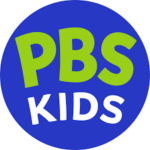Family Engagement
Gratitude is a disposition or mood that enables people to responds positively for the benefits they receive from people, nature, or a moment of peaceful bliss. Past research has recognized gratitude as one of the most important virtues a person can have. It has been demonstrated that there are psychological, interpersonal, personality, and physical benefits to being grateful.
Only recently has present research begun to actively explore gratitude in children and adolescents. Recent research with children and adolescents shows the benefits of gratitude on youth are very similar to that of adults. Specifically, grateful youth are more optimistic, have a better life and school satisfaction, engage in more prosocial behavior, and experience fewer negative emotions. Hence, gratitude has the potential to promote psychological well-being and positive adjustment in youth.
The Greater Good Science Center launched the Youth Gratitude Project (YGP) as part of the broader Expanding the Science and Practice of Gratitude, a multiyear project funded by the John Templeton Foundation. In addition to advancing the knowledge of how to measure and develop gratitude in children, the YGP created and tested a new gratitude curriculum for middle and high schoolers.
The main idea of the YGP curriculum is that varied gratitude practices should help students feel more socially competent and connected, be more satisfied with school, have better mental health and emotional well-being, and be more motivated about school and their future. Preliminary evidence for the effects of the gratitude curriculum indicate that it is helping to decrease depression, anxiety, and antisocial behavior and increase hope, emotional regulation, and search for purpose.
This curriculum features four lessons to help students understand the meaning of gratitude and how to cultivate it in their everyday lives.
The Annie E. Casey Foundation offers its latest installment to provide information on kinship diversion policies through this analysis report of state-by-state surveys of kinship care policies. Findings are based on 33 state respondents who have policies allowing kinship diversion. The Annie E. Casey Foundation defines kinship diversion as placement of a child with relatives or close family friends as an alternative to a child welfare agency taking custody and placing the child in formal foster care.
Reach Out and Read leverages the pediatric well-child visit and a significant partnership with a clinician network to foster early literacy and healthy relationships among parents, infants, and young children. Reach Out and read annually serves 4.4 million children and families throughout the United States of America.
This resource offers insight into the partnership as well as literary, literacy, and research resources to better advocate for early childhood well-being.
The Annie E. Casey Foundation has produced its 35th edition of the KIDS COUNT Data Book. The report examines unprecedented declines as a result of the COVID-19 pandemic’s effect on children and education. The 2024 KIDS COUNT Data Book assesses recent trends in child well-being and provides data profiles by state. National data profiles are available in both English and Spanish through their website: aecf.org/resources/2024-kids-count-data-book
Engaging families in the casework process promotes the safety, permanency, and wellbeing of children and families in the child welfare system and is central to successful practice. Effective family engagement occurs when child welfare practitioners actively collaborate and partner with the family network, including maternal and paternal relatives and fictive kin, throughout their involvement with the child welfare system and recognizing them as the experts on their respective situations and empowering them in the process.
This resource from the Children’s Bureau in collaboration with Child Welfare Information Gateway offers further discussion on family engagement as well as steps to achieve it.
This Engaging Families in Out-of-School Time Programs Toolkit includes tools to strengthen after school and youth programs by increasing family involvement.
Through the 4-year Engaging Families Initiative, BOSTnet worked with after school programs to develop tools and strategies to help you improve how you involve families in your program and in the success of their children.
In the following report, Hanover Research examines literature and case studies on engaging diverse families in public, K12 settings. It focuses in particular on the experiences and needs of large, urban public school districts, and on the experiences and needs of African-American and Hispanic families.
Practicing gratitude — even in difficult times — is rewarding for the whole family. To talk with your child about being thankful and appreciating those who help us, read these ideas.
Resources include games, projects, craft activities, printable worksheets, articles, and more free gratitude resources for parents and kids.
“Seven Positive Strategies for Managing Aggressive Behavior in Young Children” is an article published by Kidpower to help adults in effectively managing aggressive behavior in young children.
The Be SMART campaign was launched to raise awareness that secure gun storage—storing guns locked, unloaded, and separate from ammunition—can save children’s lives. Be SMART emphasizes that it’s an adult responsibility to keep kids from accessing guns and that every adult can play a role in keeping kids and communities safer. There are thousands of Be SMART volunteers in your communities and neighborhoods that are delivering the Be SMART message across the country in all 50 states. Be SMART resources include tips for parents and adults in talking to youth about gun violence and gun violence prevention.
The Global Family Research Project is an independent, entrepreneurial nonprofit organization that supports all families and communities in helping children find success in and out of school. We create a worldwide exchange of ideas to further the understanding and implementation of anywhere, anytime learning for all.










